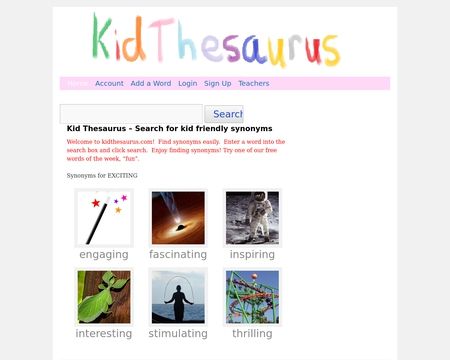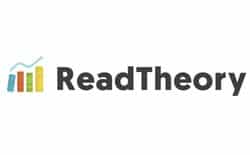Elementary Language Arts Curriculum
Elementary English Language Arts (ELA) is a key part of every child’s education. It empowers students to develop strong reading, writing, and comprehension abilities essential for academic success and lifelong learning.
Our elementary language arts program covers everything from phonics to writing. When students read and write effectively, they can better express themselves and understand others.
Our language arts homeschool curriculum builds a strong foundation of primary reading, writing, and grammar skills that they can later apply in intermediate grades. Our combination of high-quality videos, online practice opportunities, and enriching extension activities gives your child a solid base of reading and language skills while helping them to love reading.
Please note: The suggested grade levels are intended as guidelines. We encourage you to choose the level that best fits your child’s unique needs and abilities.
Kindergarten Language Arts Curriculum (Level A)
Our kindergarten language arts curriculum focuses on consonants and vowels and their sounds. Through listening to simple rhyming words, students can recognize patterns and build phonemic awareness. In other words, this helps them understand and use the sounds within words.
Learn to Read: Level A
Our pre-k to kindergarten reading curriculum is both fun and thorough! Rhyming games and letter-sound activities let students practice phonemic awareness and phonics. Drag-and-drop games and encouraging feedback help students master fundamental skills without even realizing they are learning. In this course, students will learn to identify the following:
- Sounds in everyday language
- Consonants and vowel letter names and sounds
- Sounds at the beginning, middle, and end of words
- Blending and segmenting sounds
- Rhyming words
Language Skills: Level A
Language Skills Level A focuses on emerging reading and writing skills. By the end of the course, students will be able to tell stories and recognize story elements. We begin by teaching the concepts of print, where students learn the parts of books and how to take care of them. This course will focus on the following skills:
- How to read a book
- Basic story elements
- Story sequencing
- Oral storytelling
ELA Curriculum for Early Elementary
Our early elementary curriculum teaches students new techniques to strengthen their reading and writing skills. Students will explore grammar rules, types of words, sentences and paragraphs, context clues, daily vocabulary and more. They will be able to apply these skills to new challenges in middle school and beyond.
1st Grade Language Arts Curriculum (Level B)
Learn to Read: Level B
Our Learn to Read: Level B course helps establish a strong base for reading. Students will review previous sounds and apply that knowledge to blend sounds into words. Students should finish this course with strong decoding skills and the ability to write basic sentences.
This course focuses on the following skills:
- Auditory blending
- Sight words
- Word families
- Vowel pairs
- Complex sounds
- Syllables
- Basic sentence structure
- Nouns and verbs
- Capitalization
- Ending punctuation
Language Skills: Level B
In Language Skills: Level B, students are expanding their word knowledge and developing language and grammar skills. By the end of the course, students will be able to write complete sentences, identify verbs and nouns, and understand basic punctuation rules. Students will learn about:
- Nouns, verbs, capitalization and basic punctuation
- How to write a one-sentence story
- Beginning grammar, including synonyms and antonyms
- How to write a two-sentence story
2nd Grade Language Arts Curriculum (Level C)
Learn to Read: Level C (REVISED 2023)
At this level, we recommend that students track what they are reading with a daily reading log. We encourage students to make inferences and use prior knowledge to deepen their reading comprehension. We promote strong independent reading skills for success in multiple subject areas. This course focuses on the following skills:
- Weekly reading comprehension
- Vowel pairs
- Silent letters
- Syllable rules
- Context clues
- Inferences
- Paragraphs
Reading Comprehension: Level C
Our Reading Comprehension courses provide weekly practice for on-level independent readers. The lesson begins with a video that provides reading tips and explains the comprehension questions. Each week, the student receives a leveled passage, followed by four questions to assess the following skills:
- Main idea
- Vocabulary
- Details
- Inferences/ prediction
Our grade-level reading materials include fun topics and titles such as:
- Bumblebees, armadillos, camping and moving
- Best Friends and Brown and Parm
- Fish, ants, earthworms, lemurs
- Lost and Found and Irena’s Gift
Language Skills: Level C
Students continue to learn about various sentence types and how to construct paragraphs, adding to their knowledge of language conventions and grammar rules. This course focuses on the following skills:
- Nouns and verbs
- Three-sentence storytelling
- Contractions and interjections
- Sentence types
- Beginning paragraphs
- Alphabetical order
3rd Grade Language Arts Curriculum (Level D)
Third grade marks a transition from “learning to read” to “reading to learn.” Starting in third grade, students receive a daily list of vocabulary words to practice on our site. The skills they practice in third grade ensures that they will be ready for more complex grammar and more formal writing in fourth grade.
Reading Comprehension: Level D
Reading Comprehension: Level D provides weekly practice for students reading at a third grade level. Students will first receive an instructional video that explains the questions and provides tips for effective reading. Then, students receive a reading passage and a four-question assessment. The comprehension questions assess skills such as:
- Main idea
- Vocabulary
- Details
- Inferences/ prediction
This course reading materials include fun topics and titles, such as:
- Manatees, Mars, fishing and owls
- Kangaroos, electric cars, and Helen Keller
- Fox and Crow, the Wizard of Oz, and Super Dogs
- Farmer and Stork, Peter Rabbit and Belling the Cat
Language Skills: Level D
Language Skills: Level D refines and expands upon the skills taught in Level C, broadening students’ understanding of language conventions, grammar rules, and effective communication. Skills taught in this course help students develop the clarity and accuracy needed for effective speaking and writing. This course focuses on the following skills:
- Advanced study of nouns, verbs, adjective, and pronouns
- Simple and compound subjects and predicates
- Comma rules
- Prefixes and suffixes
- Synonyms, antonyms, and homophones
- Mixed punctuation practice

ELA Curriculum for Upper Elementary
In upper elementary, students continue to develop their writing and reading skills. We design our lessons to support students in comprehending increasingly complex texts and writing with increased precision and clarity. Students begin to read beyond the surface as they learn to interpret figurative language and implicit meanings.
4th Grade Language Arts Curriculum (Level E)
Reading Comprehension: Level E
Reading Comprehension: Level E provides weekly practice for students reading at a fourth grade level. Students will first receive an instructional video that explains the questions and provides tips for effective reading. Then, students receive a reading passage and a six-question assessment. The comprehension questions assess skills such as:
- Theme and main idea
- Supporting details
- Text structure
- Narrative elements
- Words/phrases in context
- Figurative language interpretation
Our reading materials include different themes and topics such as:
- The Chicago Fire, otters, beekeeping, and pickleball
- Edison and Tesla, The Boy Who Cried Wolf, and Lion and Gnat
- Opossums, the Navajo Code Talkers, and moths and butterflies
- Pandora’s Box, Farmer’s Daughter and You Need A Pet
Language Skills: Level E
In this course, students continue to refine and expand their knowledge of language conventions while developing their research skills. This course helps students conduct research, synthesize information, and write with increased depth, clarity, and accuracy.
- Irregular verbs, reflexive pronouns, and prepositions
- Phrases and clauses
- Simple and compound sentences
- Quotation marks
- Commonly confused words
- Forms of writing and the writing process
- Reference materials, the internet, and dictionary skills
5th Grade Language Arts Curriculum (Level F)
Reading Comprehension: Level F
Reading Comprehension: Level F provides weekly practice for students reading at a fifth grade level. A video lesson at the beginning of the course introduces students to the types of comprehension questions they will answer and provides tips for effective reading. Each week, the student receives a different passage, followed by six questions to assess the following skills:
- Theme and central idea
- Evidence and reasoning
- Point of view
- Author’s purpose
- Comparison
- Character analysis
- Words and phrases in context
- Figurative language interpretation
This course includes fun topics and titles such as:
- Roberto Clemente, Antarctica, and the Great Barrier Reef
- Ellie, Fox and Goat, and Land of Nod
- Maya’s Wish, Meg’s Sunflower, and Mystery Animal
Language Skills: Level F
We designed this course to reinforce students’ knowledge of language conventions and grammar skills while learning more about different genres and writing styles. It also ensures students are ready to face new challenges in their middle school language arts classes.
- Subordinating conjunctions and complex sentences
- Literary genres and modes of writing
- Personal and fictional narratives
- Advanced synonyms and antonyms
- Abbreviations, quotation marks in dialogue, and parentheses
ELA Curriculum for Elementary: Additional Resources
Here are some additional resources to explore that may support your homeschooler’s success in elementary language arts:
Miacademy’s Reading Curriculum for Homeschool
Miacademy’s online homeschool reading curriculum engages young learners, helping them grow their skills and become confident readers and writers. Our language arts curriculum for homeschool families provides a clear foundation in conventional language skills while celebrating individuality.
We encourage students to express themselves and provide them with opportunities for creative exploration, such as writing for our Miacademy Weekly newspaper. Our students can also use their reading and writing skills to engage with their peers through our site’s fully moderated community features.
Our online homeschool language arts curriculum can fit the unique needs of different families. Many families use it as their main curriculum, having their child follow each lesson on their learning path. Others may decide they want to switch to our curriculum in the middle of the year. With the ability to customize your reading instruction, right down to each lesson and assignment, your child won’t have to repeat topics that they’ve already mastered to start learning.
Whether you homeschool full time or are looking to supplement a public school education, we’re here to support you! If you’re curious how Miacademy can be a good fit for your student, please contact one of our friendly customer service agents! They’ll be happy to help you with any questions you may have.
Updated 1/17/2024



